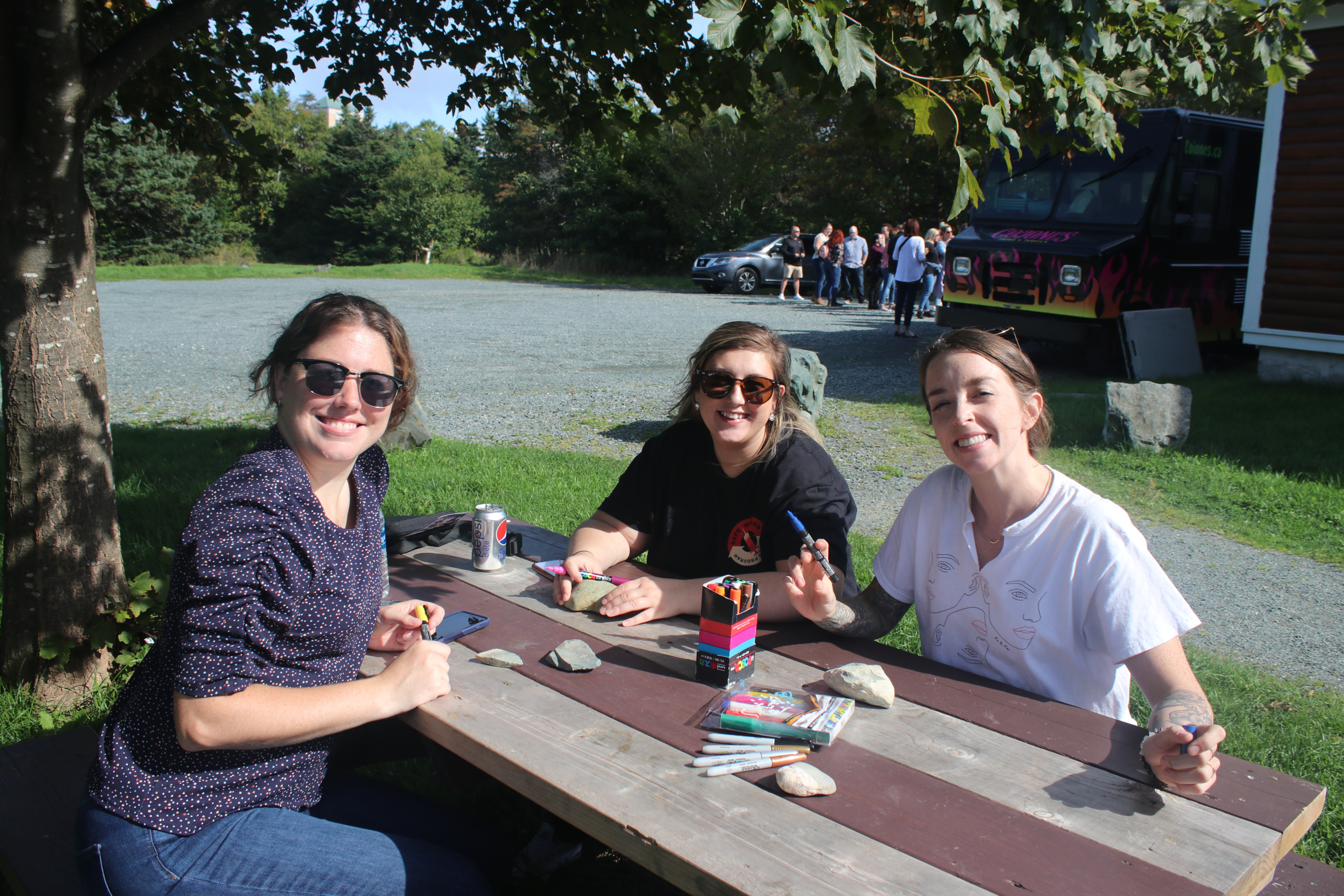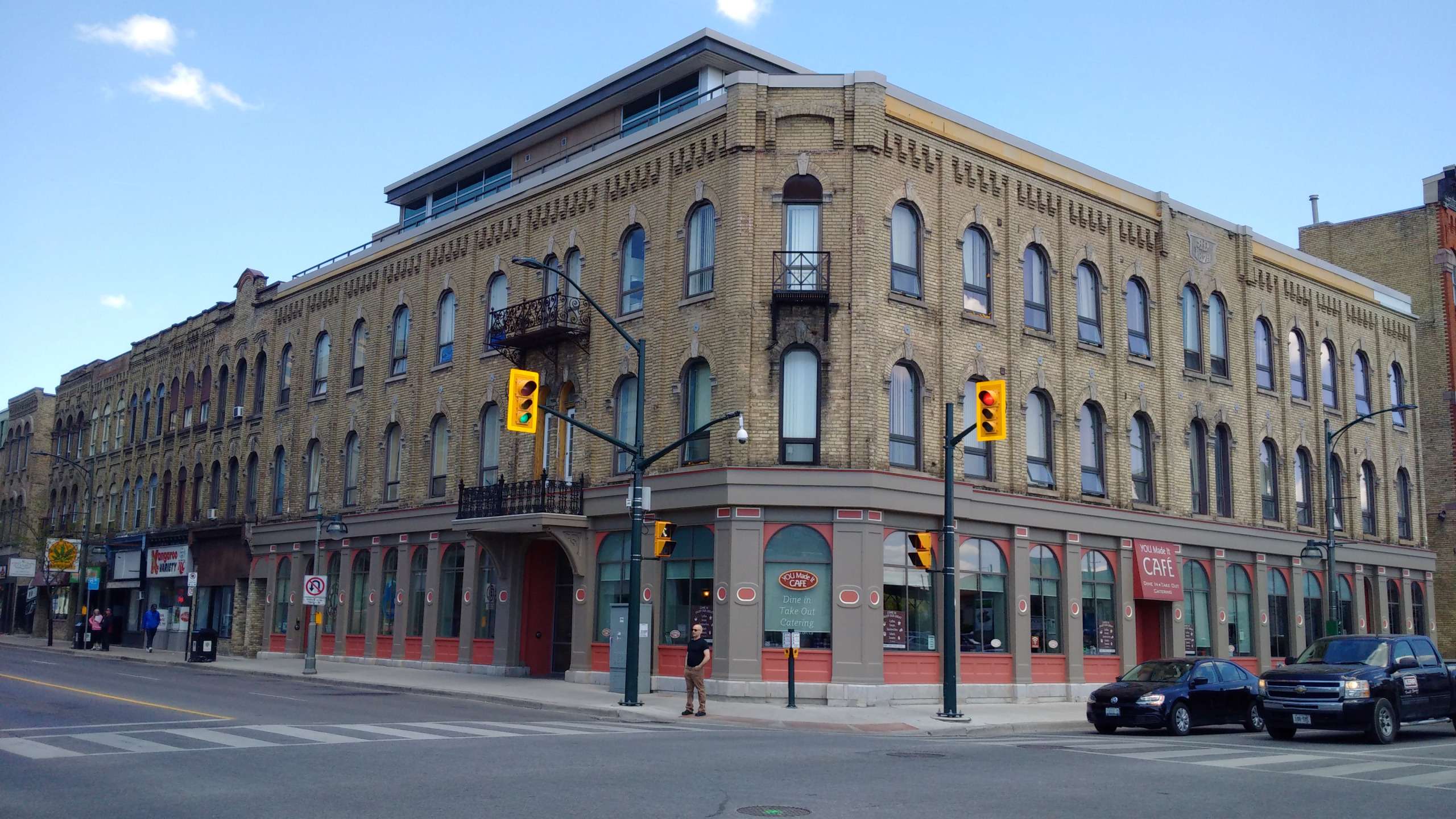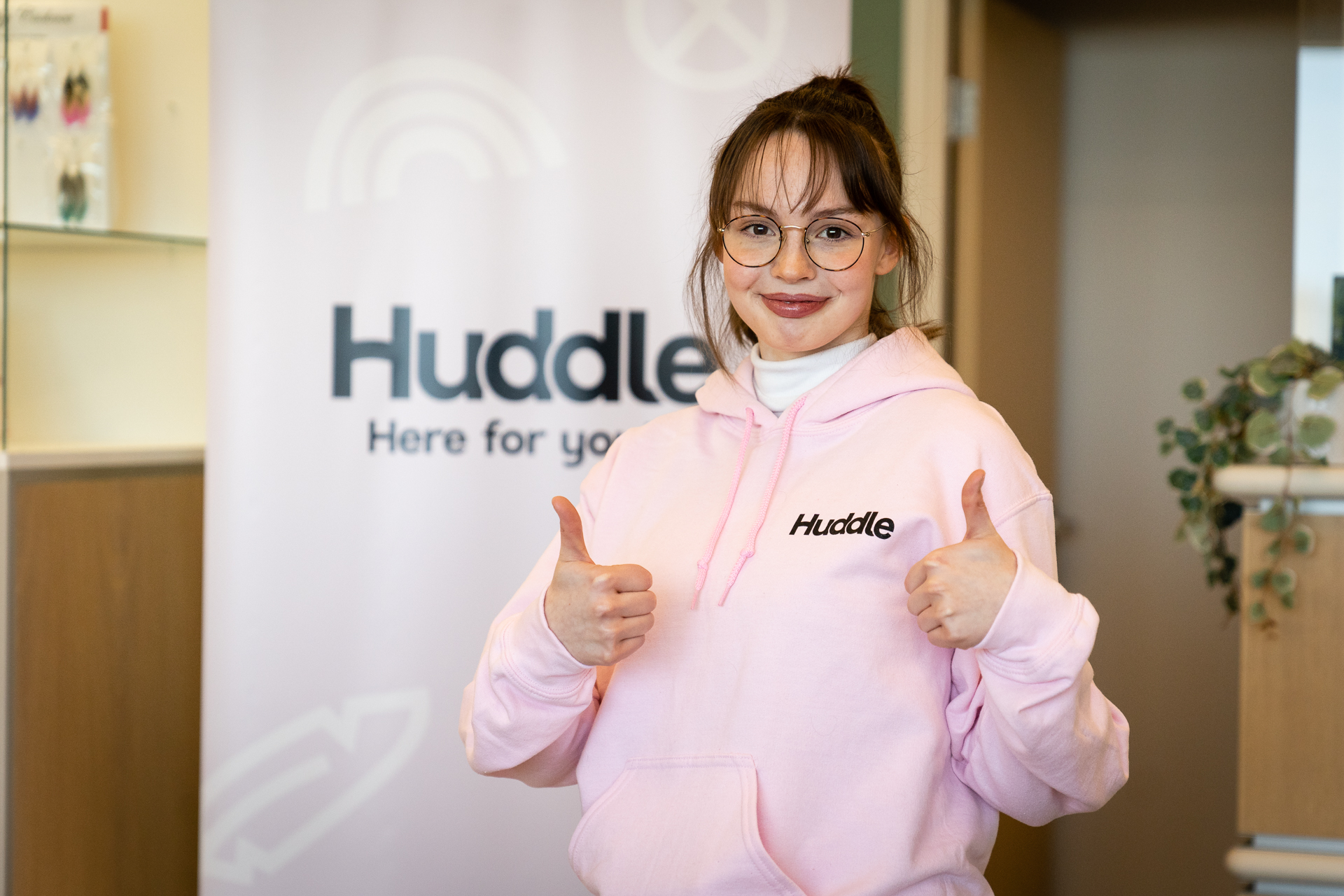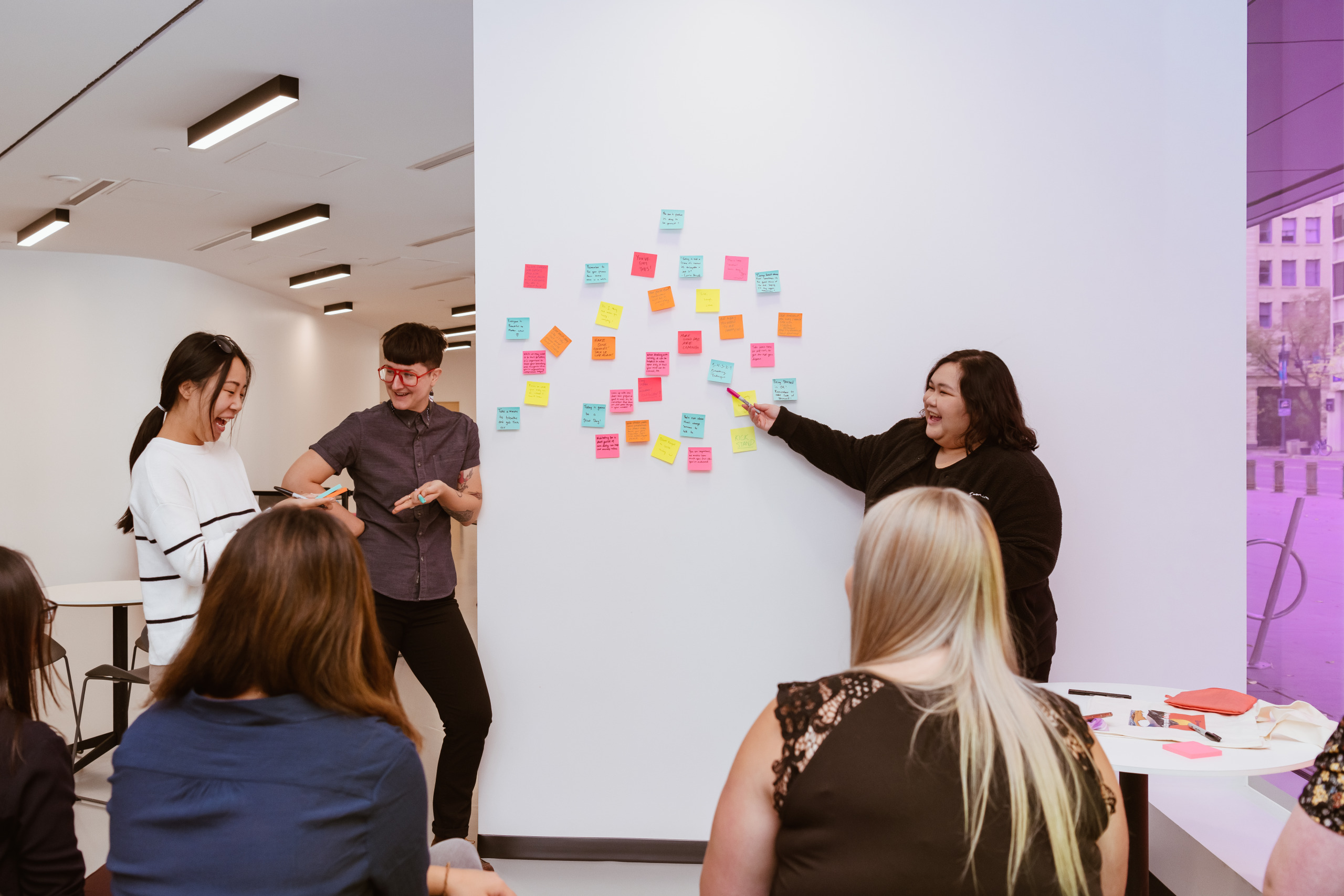While Canadian youth increasingly have a more positive outlook on their future*, they will always deserve meaningful support, respect, and care while navigating life’s ups and downs.
But in the past, young people have had to visit multiple centres or organizations to get the mental health support they need.
That’s quickly changing thanks to work being done by organizations spearheading new models that connect youth to a network of care.
The nine organizations and initiatives in this list are prime examples of what’s happening across the country and are all supported by the RBC Foundation. Seven are aligned in providing support as part of Integrated Youth Services (IYS), while two capture inspiring work being done by a pair of Canadian hospitals with similar models.
According to the Graham Boeck Foundation, IYS is “a dynamic pan-Canadian and international movement that aims to build effective, youth-focused and integrated services for mental health, substance use and related issues.” Under IYS, care of all kinds is provided under one physical (or virtual) roof, and if care can’t be provided, the young person is connected to appropriate care. This way young people have easier access to multiple professional caregivers. Physicians, nurses, counsellors, and peer support workers can collaborate to become a true support network that individuals need.
In the past, a young person seeking help in Canada might have gone through the doors of one clinic dedicated to, for example, substance use. They’d tell their story and get help for that one issue. But issues like substance use rarely exist in isolation. A person might also need mental health, physical and sexual health care; they might need social services—such as emergency housing and job-seeking support.
In essence, IYS is all about providing youth with wrap-around supports through a network of networks. It just makes life that bit easier in what’s already a difficult time.
RBC supports youth mental well-being through RBC Future Launch and has donated $38 million to support mental health programs across Canada since 2018. Through its youth mental well-being pillar, RBC Future Launch is focused on supporting youth (15 to 29) with: Recognizing and addressing early signs and symptoms of a mental health challenge; accessing the types of care that work for them in a timely manner and navigating the mental health care system. RBC currently supports single sites as well as the Integrated Youth Services Network of Networks and the virtual Youth Wellness Hubs of Ontario (YWHO).
Find professional support at an Integrated Youth Service hub near you.
Click below to learn more about each organization or initiative:
Centre of Excellence in Youth Mental Health
Youth Wellness Hubs Ontario (YWHO)
Children’s Hospital of Eastern Ontario
Strides
Youth Opportunities Unlimited
Huddle
Kickstand
Foundry

1. Choices for Youth: Opening up services to young people in Newfoundland and Labrador — St. John’s, Newfoundland and Labrador
Based in St. John’s, for more than three decades, Choices for Youth has been providing essential services. Young people experiencing homelessness, poverty, and other challenges can find housing support and mental health and addiction counselling. Choices for Youth is also supporting the development and implementation of a provincial IYS initiative. Over the next three years, this non-profit plans to operate six sites across the province — meaning additional at-risk youth can get the support they need closer to their home communities.
Executive Director Sheldon Pollett says, “At Choices for Youth, the real stories that matter are the ones we hear about young families thriving because they are getting what they need; that children are no longer in care because a young woman is empowered and succeeding; that young people have a path to sustainable futures because they have access to education and employment to help them thrive; that youth are no longer being traumatized by homelessness because they have safe and affordable housing to call home; that youth struggling with their mental health or addictions challenges are no longer cycling through the system in harmful ways because they have better supports that meet their specific needs. These are just a few of the many ways youth inspire us with their success and we are privileged to be a part of it.”
2. Centre of Excellence in Youth Mental Health: Putting families at the heart of mental health care — Montreal, Quebec
At the Douglas Mental Health University Institute in Montreal, the Centre of Excellence in Youth Mental Health has been working on building a Family-Positioning System (FPS) with investment from the RBC Foundation. FPS will be a peer-to-peer support program, made specifically for the families of youth with mental health challenges.
Kristin Davis, who manages the project, notes that medical patients are categorized by age into either pediatric or adult health care in Canada. The pediatric cut-off is 18, but she says that doesn’t reflect the biological definition of development.
“Our brain really matures in our 20s rather than at 18,” Davis says, and not all young people can navigate adult services alone — they might still need family help. That’s why the Centre is working on building support tools for youth that place the family unit at the heart of things. After all, parents or guardians might notice changes in a young person’s behaviour first; if they have the tools and knowledge to help a young person get access to mental health care in time, that can make a big difference.
“When I read in scientific literature that families contribute greatly to the well-being and recovery of people living with mental illness, I was not surprised,” adds Charles-Albert Morin, Peer Support Worker at Aire Ouverte, which works with the Centre of Excellence in Youth Mental Health. “In my own life and journey with this disease, my mother, father and brother played huge roles in bringing me out of the darkness. Without their help, I might not be here to testify today.”
3. Youth Wellness Hubs Ontario (YWHO) – Across Ontario
YWHO partners with youth, families, communities and services providers to support over one hundred organizations to deliver IYS to youth aged 12 to 25 years old in 30 communities throughout Ontario. Operating as a Learning Healthcare System, YWHO collaborates with youth, families and service providers to define and measure meaningful outcomes so that services can be continuously improved. YWHO supports best practices used in communities across Ontario to be scaled to other parts of the province and focuses on pursuing equity in outcomes.
According to Dr. Jo Henderson “The IYS model is spreading across Canada because the model was co-designed with youth and families to address longstanding system shortcomings: Sharing power and resources are key to transformative change.” RBC was an inaugural funder of Youth Wellness Hubs of Ontario (commonly known as YWHO) and has provided support since 2018.
4. Children’s Hospital of Eastern Ontario: Helping young people navigate mental health and addiction services — Ottawa, Ontario
Ottawa’s children and youth hospital isn’t part of IYS, but it operates similarly, connecting youth to a network of care and support services. A global leader in pediatric health and research, the Children’s Hospital of Eastern Ontario runs 1 Call, 1 Click, which helps children, youth, and families connect with the right mental health or addiction services when needed. An initiative of the Kids Come First Health Team, the organization saw families struggling to find the right care despite the availability of services across the region.
“We knew there were services,” explains Cindy Dawson, clinical manager for the program, “but they were very siloed and didn’t necessarily work together. That left families carrying the load of trying to find care that was the right fit.”
Before 1 Call, 1 Click, families had to tell their stories repeatedly to agency after agency before they might find one with room for their child. 1 Call, 1 Click serves as an intake program that connects children, youth, and the family members caring for them with services that are right for them and have near-immediate availability. Their referrals are sent with case notes, ensuring that the families don’t have to repeat difficult narratives each time and get access to care quickly.
5. Strides: Providing diverse services to Toronto’s youth — Toronto, Ontario
Strides is a charity working in 19 locations across East Toronto. It provides IYS for young people up to 29 years old with mental health and developmental challenges through three YWHO locations. One Strides staff member spoke about a young person who came in with a complex history, and the difference IYS made to her life: “[S]he repeatedly used walk-in and she is now a wonderful individual. At her age, her growth is really just amazing… I commend the program for providing accessible service. It’s really an honour to work here.”
Since Toronto is one of the most diverse cities on the planet, with 170 languages represented, Strides ensures young people can access services in a language they’re comfortable in, not just English and French, but Tamil, Mandarin, and Farsi too.
Strides is also partnering to launch a new provincial service in Ontario, where young people under 18 can get immediate access to free mental health support with the new virtual counselling service, One Stop Talk. That service is available after hours and on weekends if young people need to discuss anything they’re struggling with. That can make all the difference to a young person — knowing help is there whenever needed.

YOU’s Cornerstone building. Source: Youth Opportunities Unlimited
6. Youth Opportunities Unlimited: Providing shelter and training to young people in the city — London, Ontario
Youth Opportunities Unlimited (YOU) provides Integrated Youth Services to approximately 3,600 young people in London and Middlesex County each year. This includes emergency shelter and affordable housing units, education programs, career services, and mental, physical, and dental care.
YOU hosts a range of “micro-enterprises” that give London’s young people vital employment experiences: For example, at the testing kitchen, youth are learning to make jams, salsas, chutneys, and jellies that are then sold in local grocery stores and cafes, as well as directly by YOU. Others are training, earning a wage, and contributing to their community in the YOU bike shop or making wood products — such as garden trellises and planter boxes—in the woodworking shop.
What difference does all this make to a young person who’s struggling? Amanda Tretter, a recent graduate of YOU services, said she’s never felt so “known and accepted … Every day when we leave the building, they tell us to make good choices, so I started doing that.”
 Source: Huddle
Source: Huddle
7. Huddle: Bridging Indigenous and Western models of care for youth — Southern Manitoba
Huddle provides a full continuum of mental health, substance use, and addiction services to thousands of youths at six hubs across Winnipeg, Brandon, and Selkirk.
The youth hubs were designed for and with youth and bridge Indigenous and Western models of care. Young people can come in for one-on-one mental health counselling, STBBI testing, health education workshops, or career counselling — or even just for a snack, to charge their phones, and hang out in a safe, supportive and free space. They also have access to Indigenous cultural counselling, Elders and Knowledge Keepers, ceremonies, and appropriate cultural and land-based activities. With the support of RBC Foundation, the non-profit is growing.
“We are grateful to RBC for supporting Huddle as we work to build a Huddle IYS network across Manitoba,” says Pam Sveinson, Huddle’s Executive Director.

Source: Kickstand
8. Kickstand: Making mental health tools available to young Albertans — Across Alberta
Kickstand is another innovative non-profit using virtual tools to help young people access health and social services as easily as possible. Its virtual wellness clinic is called Kickstand Connect. Through the platform, peer support workers, licensed counsellors, and employment specialists are all on-hand to talk to Alberta’s young people about specific issues in one-to-one sessions. They’re a hub for services in the provinces, including substance counselling and mental health support. They also offer workshops focused on issues such as eating disorders, alcohol, and cannabis — and on increasing, for example, financial, technology, and food literacy.
Kickstand Youth Action Council member, Hasul Kim, says of the organization, “I strongly believe that organizations like Kickstand are essential, and they could really save so many lives.”
9. Foundry: Helping young people across the cities and countryside — Across B.C.
Foundry works out of 19 centres across the province — from Vancouver to Victoria to Abbotsford and beyond — to ensure young people can access core IYS services. A huge number of young people — over 14,000 in 2022 alone — go to these centres to get help with mental health care, substance abuse, physical and sexual health care, youth and family peer support, and social services.
Foundry has also developed handy virtual tools and resources that can be found on the website and through their free app.
Provincial Peer Support Coordinator Paige Lougheed says the app is open to young people across B.C., “so any youth aged 12-24 can access all of Foundry’s services, from drop-in counselling to talking to peer support to talking to a nurse practitioner.” Only recently launched, thousands of B.C. youth have already used the app.
As part of RBC Future Launch, RBC is committed to enhancing youth mental well-being, offering access to a wide variety of digital resources that can help cope through challenges, build skills in resilience and even help other youth who may be struggling. Please take some time and explore the link above.
* – The upcoming Youth Outlook Study by Ipsos, conducted on behalf of RBC, found that 81% of young Canadians report satisfaction with their life—an increase of four points from 2022.
This article is intended as general information only and is not to be relied upon as constituting legal, financial or other professional advice. A professional advisor should be consulted regarding your specific situation. Information presented is believed to be factual and up-to-date but we do not guarantee its accuracy and it should not be regarded as a complete analysis of the subjects discussed. All expressions of opinion reflect the judgment of the authors as of the date of publication and are subject to change. No endorsement of any third parties or their advice, opinions, information, products or services is expressly given or implied by Royal Bank of Canada or any of its affiliates.



















